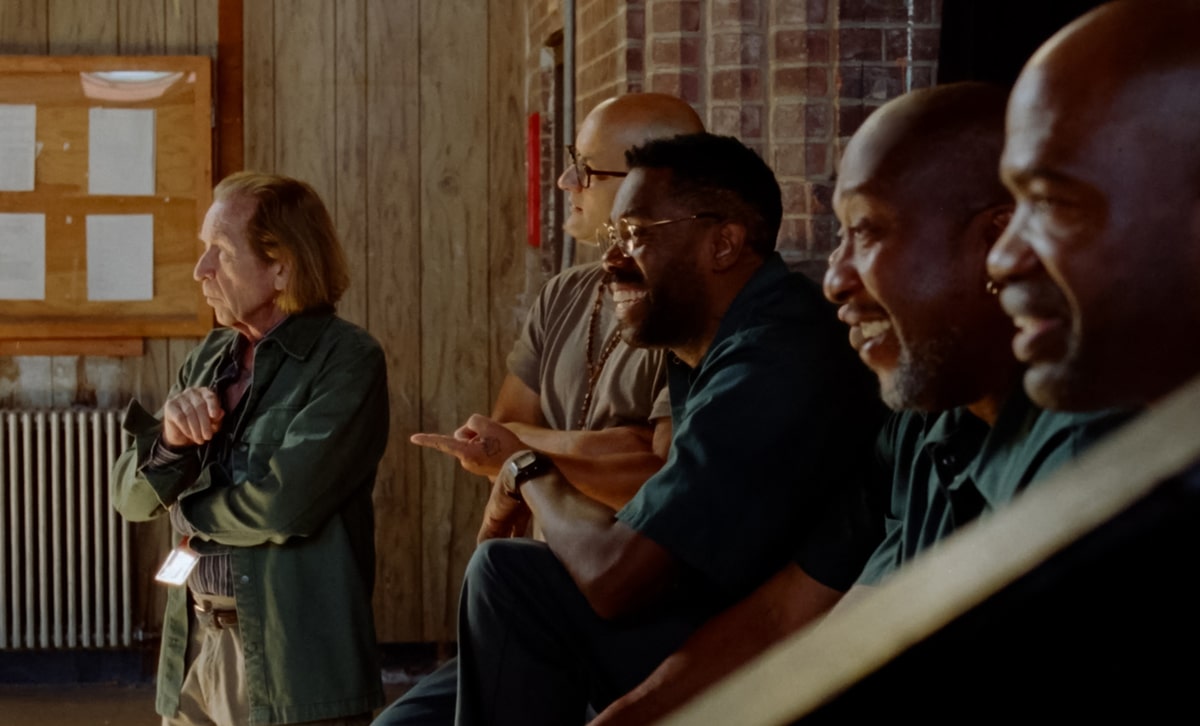“Comai” is a 59-year-old Latina from New York. She has three children and cares for her ailing mother full-time. Like many Latinas, she loves to express herself and she loves to teach. “The younger girls, they looked at me as their mother figure,” she says with pride. “I bonded with them because I knit and I was teaching them how to knit,” she says.
This type of situation is a staple in our Latino communities. It’s safe to say that many of us grew up learning to sew, crochet, or cook from an elder. What is not common about this communal experience is where it took place for Comai.
“I was in Bedford Hills Correctional Facility for 17 years,” she says. Yes, our affectionately named Latina served two decades of her life behind bars for domestic violence – 17 at Bedford and another three years at Taconic Correctional Facility. We are calling her “Comai” because that is how she was referred to while being incarcerated.
Latina Media Co spoke with her just days before she marked three years of freedom “In two days [it will be] three years. Wow, I didn’t realize that,” she says. “You know, my kids were little when I came in, and now they’ve grown with their family,” Comai speaks of her loved ones a pride that she learned to have while serving her time. A lesson that she largely credits to a program called RTA – Rehabilitation Through the Arts – recently featured in Colman Domingo’s Sing Sing.
“The RTA program was the best thing that came to my life,” she says first almost immediately upon hitting record on the interview.
The purpose of the program is right in the title – rehabilitate those incarcerated through the arts. The “arts” in this case are theater, dance, writing, and painting among others. The program has been receiving a good deal of attention for its success since its inception 20 years ago in the New York prison system. Most recently, it got the Hollywood treatment in Colman Domingo’s Sing Sing.
The acclaimed film premiered last fall at the Toronto International Film Festival. Domingo is “Divine G,” a real person, falsely imprisoned, who finds purpose and hope through the RTA program at Sing Sing Correctional Facility.
Sing Sing doesn’t just show the stories of RTA alumni on screen, it also features a good deal of them. That includes breakout star Clarence Maclin, who plays a slightly altered version of himself onscreen. The choice to cast former inmates absolutely gives the story authenticity to the story – but more importantly, it showcases the raw talent of RTA participants.
At its core Sing Sing is a raw and rare look at a hidden corner of our community. It has the audacity to inject hope into a hopeless situation. It shows that if you treat humans with respect, they will respect themselves and by extension their community. It shows that, through art, even incarcerated people can achieve some freedom.
And that is a lesson that is absolutely learned, practiced, and taught by Comal and the good folks at RTA.
“Being in RTA, it let me look forward to my future,” she says.
For Leslie Leichter, the Interim Executive Director of RTA, she sees every day how participating in RTA helps people: “They feel, ‘my voice matters, I can do this. I never thought I could get up on stage. But I did that. I can do more,’” She continues, “What struck me is the power of a program, which at first glance may sound simple, but it’s so brilliant in every aspect of how it’s led.
“We hire artists who have teaching experience and they go into the facilities and lead the workshops,” explains Lichter. “I think one of the unique aspects of RTA is the fact that there’s a leadership committee in each of the facilities that we work in, and that leadership committee has incarcerated individuals who have been in the program.” Together they work hand-in-hand to create new works or recreate existing ones for the population.
While it may seem odd to have a group of incarcerated individuals put on a play or take a dance class, it works.
They report that less than 3% of their members return to prison, compared to the national recidivism rate of 60%. John Jay College of Criminal Justice and NYS DOCCS found that RTA participants’ rates and severity of future infractions were significantly reduced. And a second study by Purchase College, SUNY, and NYS DOCCS found that RTA participants are pursuing and completing more education after starting RTA, as compared to a matched group.
Though RTA only exists in New York state, it isn’t the only program of this kind to exist. In fact there are others across the country. Each with similar stories of success across the board. So if these programs are successful, why aren’t they in every prison or correctional facility across the country?
The answer is simple: Funding. “We’re hoping that the movie gives us more awareness such that we can raise the dollars to be able to go to other states and to be able to work with other organizations,” says Lichter.
For Comai, her time with RTA continues to influence her daily life. “You have to break the cycle. I want everybody to know that this program does work because it teaches you that.”

Donate to RTA. Sing Sing is re-opening in select theaters across the country January 17, 2025.

